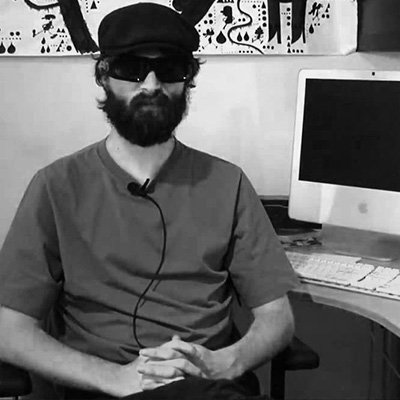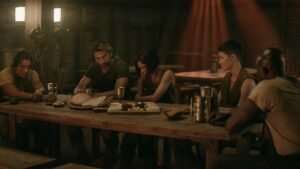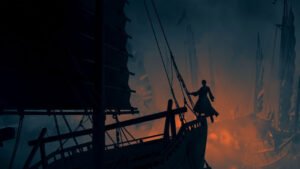Western RPG fans are often aware of games like Planescape: Torment and Baldur’s Gate, and the recently-supported Kickstarters for spiritual descendents such as Torment: Tides of Numenara and Project Eternity. Our writer Alexander Leach caught up with Creative Director and co-owner of Obsidian, Chris Avellone, at MIGS, and asked questions about the various Kickstarter’d games he’s been involved in and the direction the genres are taking.
Baldur’s Gate, developed by Bioware and published by Black Isle in 1998, won several RPG of the year and Game of the Year awards, met with critical acclaim for its writing, isometric real-time gameplay, and wide variety of quests and events to pursue. Planescape: Torment, a similar RPG developed by Black Isle and set in the Dungeons and Dragons “Planescape” setting, followed an immortal being’s search for his memories. It proved that story and narrative could carry a game, with dialogue greatly outstripping combat instances over the game’s length.
Chris Avellone still works with Obsidian Entertainment, which fully funded their Kickstarter for Project Eternity, a spiritual successor to the line of games similar to Baldur’s Gate. They also created Fallout: New Vegas, and most of its DLC. Torment: Tides of Numenera (whose setting is developed by Monte Cook, who wrote Planescape’s setting) is being developed by InXile Entertainment, with Chris Avellone assisting in production.
This online section focuses on Wasteland 2, a post-apocalyptic RPG. This is a companion piece to the article published in the January magazine, and to the video published on CGMagazine’s Youtube page.
Comics Gaming Magazine: A lot of these games you’ve made with Kickstarter rely on nostalgia. How are the games going forward going to go beyond that nostalgic desire to recapture old games?
Chris Avellone: I think you’re correct. Nostalgia has been one of the big pillars of a successful Kickstarter. When people remember a certain type of game and a certain type of game experience, that contributes a lot to the funding level and the support you get from backers. In terms of how we’re evolving beyond that: I think that when doing a game like Baldur’s Gate in the Forgotten Realms, in the franchise owned by Hasbro and Wizards, there are certain bookends and limitations in how far you can push the world and push the characters.
When you don’t have those limitations and there’s certain cultural elements you want to explore that might otherwise be taboo or “a touchy subject”, that is something we can now explore in game, and have things like “Hey, what would a drug-dealing commerce be like?” If you do have drug-addicted characters, what are the issues with that? Are there other elements like that that we might want to explore on a wider level that we couldn’t normally do with another franchise?
CGM: One last line of discussion. Wasteland 2 will be coming out soon. Do we have a release date?
Chris Avellone: The release date I’m not actually sure about, I’d have to check with InXile on that. I do know they have their Beta being fired up soon to have people stomp through that and see how that feels to them. I’ve seen a lot of the locations, they look really beautiful. The quests are really funny. The way to use your skills to solve various quests are pretty innovative. I was having a lot of fun playing it and watching people play it. I can’t wait to dive in it a bit deeper.
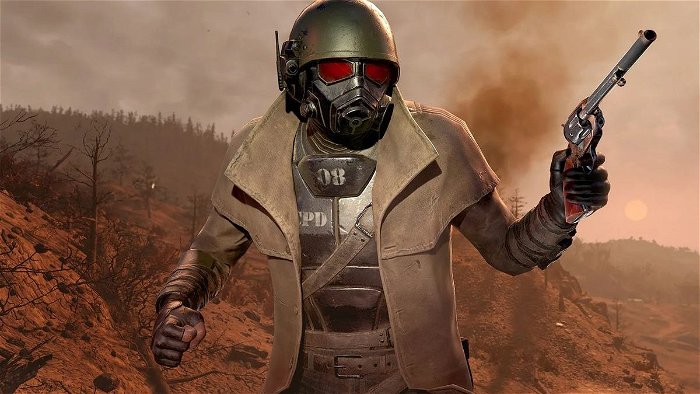
CGM: Now you worked on the DLC for Fallout: New Vegas?
Chris Avellone: Yes, I worked on the core New Vegas game, and then I headed up three of the five DLCs (Dead Money, Old World Blues, and Lonesome Road).
CGM: The Fallout games were inspired by the original Wasteland game. Are elements from Fallout carrying over into Wasteland 2?
Chris Avellone: Not exactly. And you’re correct, Wasteland was sort of the spiritual ancestor to Fallout. Actually Interplay wanted to do more Wasteland games, but the license was owned by EA, so they were like “Hey, why don’t we just do a spiritual successor to Wasteland?” That ended up being Fallout, and that obviously did well in its own right. So it’s been really weird to go from having Wasteland 1, and then the entire Fallout series, and going back to Wasteland 2. In terms of stuff carrying over, though, I think Wasteland and Fallout have separate elements about them that I think help differentiate them.
One is, as much as Fallout is steeped in a 1950s sci-fi vibe, Wasteland is much more 80s, Road Warrior, and that kind of nostalgia versus the 50s. I think that creates a lot of different aspects of characters in the environment, even their looks, their dress, the way things happen with character interactions. The other thing, moreso, is that Fallout is in many respects more solitary, one-man’s-journey kind of game – sure, you get companions in the Fallout series – but in Wasteland it’s very much a party-based tactical game as well. You end up deploying your entire cadre of rangers, they sort of become your band of brothers to tackle various obstacles, and that creates a sort of creates a companion, party-based feel right at the outset.
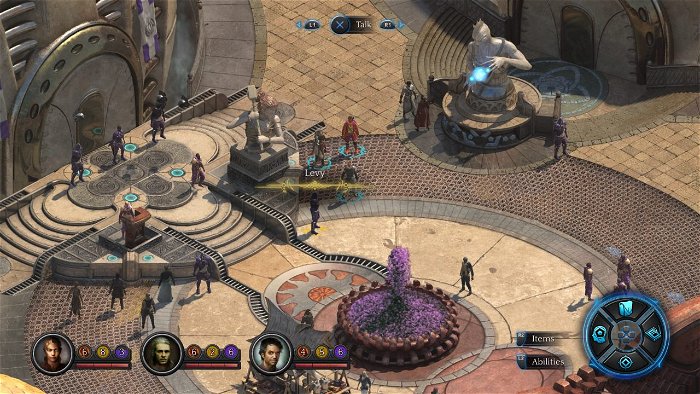
CGM: So there’s more of a sense of communal isolation in Wasteland, as opposed to the singular isolation of Fallout?
Chris Avellone: That’s exactly it.
CGM: Do you have any plans for the future beyond this? Where do we go from here?
Chris Avellone: The Kickstarter push with a lot of games has been really encouraging. I don’t know if Obsidian will do another Kickstarter. I do know that with all the success of the isometric role-playing games that have come out with Wasteland 2 and Eternity and Tides of Numenera, I think that’s caused some publishers to realize that there’s actually a good, solid market for more low-budget games like that that still have a great reactive feel, a lot like Infinity engine games. Seeing publishers suddenly wake up and take notice of that and being willing to talk about games like that in the future I think has been encouraging.

